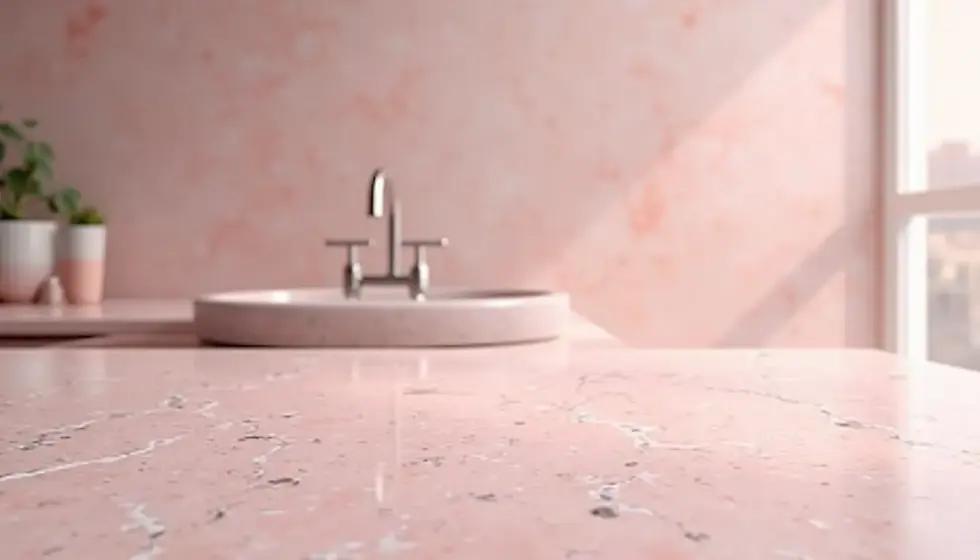Do quartz countertops need to be sealed? The quick homeowner answer + smart care tips 🧽
- Mei-Lin Arora

- Sep 6
- 3 min read
Updated: Sep 7
Wondering do quartz countertops need to be sealed before that first big cook? Short answer: no—modern quartz (engineered stone) is a non-porous blend of natural quartz and resin, so it doesn’t absorb like marble or many granites. Sealing won’t help and can even leave a hazy film you’ll fight to remove.
Pro tip: If a contractor tries to sell a sealer “just in case,” ask for the manufacturer care guide for your exact brand and color. Most specify no sealer for quartz.

Do quartz countertops need to be sealed? (and “does quartz countertops need to be sealed”)
No. Because quartz slabs are factory-nonporous, a topical sealer has nothing to penetrate. Routine care is simple: wipe spills, use cutting boards and trivets, and follow your brand’s maintenance sheet (examples in Consumer Reports’ countertop guide and a typical manufacturer care page). If you see a product marketed as a “quartz sealer,” it’s usually just a temporary polish—optional for shine, not protection.
Pro tip: Keep a pH-neutral cleaner on hand. Harsh alkaline/acidic products can dull resin binders over time—no sealing needed, just sensible cleaning. 🙂

Durability in real kitchens: scratches, heat, and lifespan
Do quartz countertops scratch? They’re scratch-resistant, not scratch-proof. Dragging ceramics, sand, or metal across the surface can mark any finish. Use boards and felt pads under small appliances.
How long do quartz countertops last? With normal care, decades. Many brands warrant residential use for 10–25 years. Avoid prolonged heat above the brand’s limit (usually ~150–212°F on the surface)—use trivets for pans, air fryers, and toaster ovens.

Weight, pricing, and buying smarts
How heavy are quartz countertops? Typical 3 cm (≈1¼″) quartz weighs ~14–18 lb per sq ft (thickness and brand vary). Plan for safe handling and adequate cabinet support during install.
Best prices on quartz countertops:
Save by:
Choosing stock colors over custom/veined premiums,
Minimizing seams and cutouts,
Bundling with a fabricator during sale periods, and
Using standard edge profiles.Get itemized quotes (material, fabrication, edge, cutouts, splash, delivery, install) so comparisons are apple-to-apple.

Cleaning that keeps quartz looking new
Daily: Microfiber + pH-neutral spray; rinse and dry to banish water spots.
Stuck residue: Plastic scraper + warm soapy water.
Avoid: Oven cleaner, paint strippers, strong bleach solutions, and abrasive pads.
Shine: If desired, use a brand-approved polish (non-sealing) sparingly.
A quick reference on safe household cleaners: the EPA Safer Choice database is a reliable, long-running resource when picking mild, effective products.

FAQ
In one sentence: do quartz countertops need to be sealed?
No—quartz is non-porous from the factory, so no sealer is required or recommended.
Does quartz countertops need to be sealed if it stains once?
Still no; use a non-abrasive cleaner or a brand-approved poultice for tough marks—don’t seal over a spot.
Do quartz countertops scratch easily?
They resist everyday wear but can scratch under grit or metal; use boards and pads.
How heavy is a typical kitchen run?
A 25 sq ft L-shape at 3 cm can exceed 350 lb—plan delivery paths and helpers.
How long do quartz countertops last?
Properly cared for, they last decades and often carry long residential warranties.
Conclusion
So, do quartz countertops need to be sealed? No—skip the sealer. Focus on smart cleaning, heat protection, and good installation. If you’re comparing best prices on quartz countertops, weigh color tier, edges, and cutouts—and remember: while resilient, do quartz countertops scratch under abuse, so protect the surface to enjoy it for years.



Comments